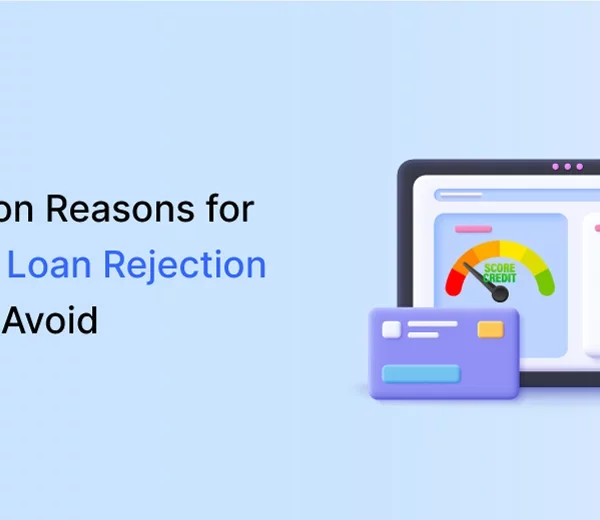Planning your finances properly is the first step toward achieving financial success. Many people think that they can wing it with their money but that can lead to excessive spending. Also, financial planning is not only for people who have a regular salary each month. Even people with irregular incomes can do financial planning and make their financial lives better.
In this article, we will talk about ways in which you can do financial planning when you have irregular income.
Importance of Investment When You Have Irregular Income
India’s working community is changing in recent times. We all know that millions of people lost their jobs during the pandemic. Many Indians became freelancers to deal with the ongoing unemployment crisis and now more and more people are becoming freelancers every year. BW Businessworld reported that India currently has a pool of 1.5 crore freelance workers working on projects in IT, HR, and design. On top of that, India’s workforce is growing by 4 crore people every year, adds BW Businessworld.
Freelance work offers you more flexibility than typical 9-5 jobs. However, freelancers don’t get a monthly salary; they get paid once they finish their projects. Since they get irregular income, they may find it difficult to plan their finances. Here’s how you can do that easily when you have an irregular income.
1. Set Up A Baseline Monthly Income
To find out your baseline monthly income, go through your bank statements or accounting records. Use your lowest monthly income over the past year as your baseline income. This number should be your net monthly earnings after you set aside what you will owe in estimated taxes.
2. Make A Budget
Now that you know your baseline monthly income, try creating a monthly budget. Your budget should have space for essential expenses such as food, phone bills, internet bills, groceries, etc., You can also include entertainment, eating out, and traveling, as well as, savings and investments. Always make sure that you stick to your budget every month.
3. Have An Emergency Fund
An emergency fund is a staple for everyone, be it salaried employees or freelancers. People should have at least 9 to 12 months of your expenses in their emergency fund. This will help you when you don’t have many projects lined up or if you come across any unexpected events. Even if you withdraw from your emergency fund during unforeseen circumstances, make sure that you refill it again with your next month’s income.
4. Buy Insurance
To protect yourself and your family, you should get good health and life insurance coverage. You can take term life insurance coverage if you have dependent family members or you can avail of this cover later in life after marriage and kids. It is highly important to take health insurance so that it can cover your medical expenses and doesn’t let hospital bills burn a hole in your pocket.
5. Start An SIP & Lumpsum
You can start an SIP (Systematic Investment Plan) and lumpsum together to get added benefits. We know that SIPs get deducted from your bank account periodically. But one of the most awesome features of an SIP is that you can pause it whenever you want. So, if you are getting regular payments, you can start an SIP. On the other hand, you can also start investing in mutual funds through lumpsum. This means, you can increase your investment in a particular fund via the lumpsum mode anytime you get your paycheck.
A SIP calculator online is a beneficial tool, which shows the estimated returns you will earn after the investment tenure
6. Build A Second Source Of Income
When you don’t have a regular income, it is important to have another source of income. Having a second source of income will give a much-needed boost to your financial life. Many platforms for freelancers can help you get work in multiple fields. Having multiple clients and projects will help you get a good amount of income and keep you afloat during times of crisis.
7. Plan For Your Retirement
Our philosophy is that you should start saving for your retirement as early as possible. It is never a good idea to wait until your 30s to start saving for your retirement. Even if it is just ₹1000 every month, try putting it in an SIP regular so that you can take full advantage of the power of compounding. You can also consider investing in PPF, NPS, ULIPs, etc., to build your wealth over the long term.
8. Avoid Racking Up Debt
People who have irregular incomes rely on their credit cards for most expenses. Many freelancers use their credit cards when their bank account balance is low. They will pay off their credit card bill once they get paid. However, the problem with this is that you will always be in a state of constant debt. Also, if you don’t get paid on time, you may default on your credit card bill, leading to a negative impact on your credit score. This could also result in higher interest rates and expensive EMIs if you ever wish to apply for a loan later on in your life.
9. Stay Disciplined
If you want your financial plan to work, you need to keep budgeting every month and stick to your budget. When you are disciplined with your financial plan, you will be able to keep up with your goals and live worry-free every month. It will also help you not depend on your paycheck and keep you afloat every month.
10. Be Credit Healthy
Anytime you apply for a credit card or a loan, lenders will look up your credit score. Some lenders also decide your interest or processing charges based on your credit score. A credit score over 750 is considered to be a good score. So, even if you use multiple credit cards, make sure to pay your credit card bills and EMIs on time. It is also a good idea to avoid multiple direct inquiries for credit cards and loans within a short period, as well as, maintain a CUR (Credit Utilization Ratio) under 30%, and have a balanced credit mix.
In The End…
You can plan your finances even if you have an irregular income. Sometimes, people use this as an excuse and spend everything at once when they get paid. When your life lacks a financial plan and a proper budget, you would not able to figure out where your money is going, how much you are saving, and whether you have enough money to invest in fruitful instruments. We hope you were able to understand how you can plan your finances when you have irregular income.
If you wish to learn about other topics such as Mutual Funds, Fixed Deposits, tax-savings investments, goal-based investing, and more, head over to our Blog section. You can also create an account with Koshex to streamline your finances, invest in personalized recommendations, save in smart saving options, and step up your financial journey.
We are truly made for every Indian investor. So, download our app today!









Leave a Comment